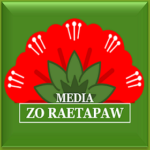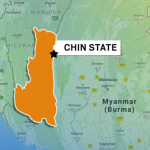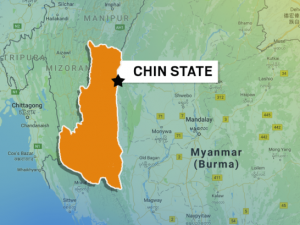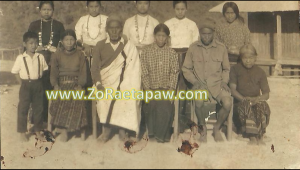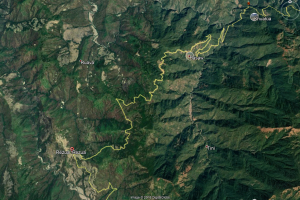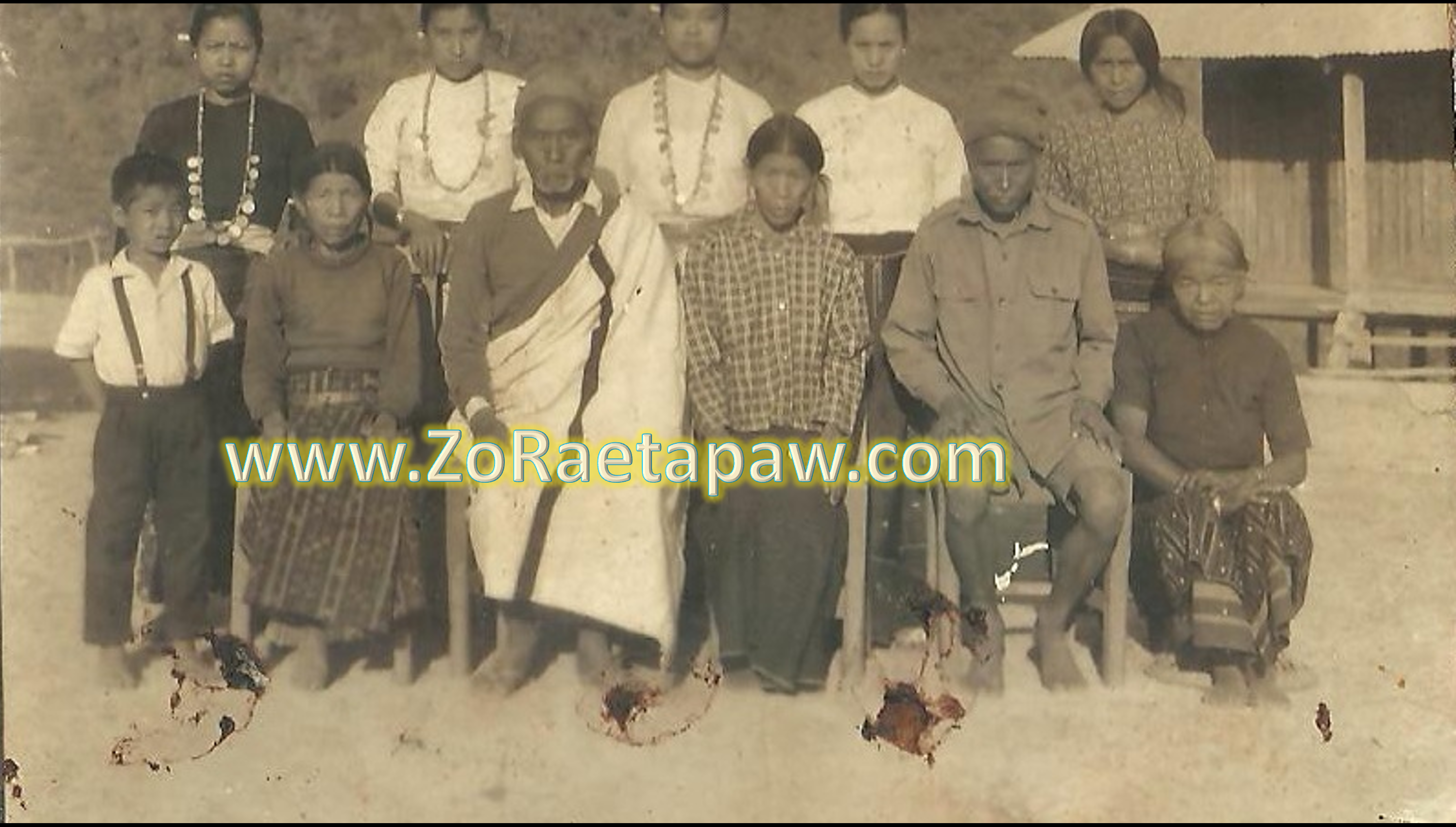
‘Zo’ is a propler name and ‘mi’ is man or people so Zomi is simply Zo People. Zomi is often wrongly referred to by some writers as a mere ‘locally used term’ by some Chins, like Laimi and Ciimnuaimi bo identify themselves. Sadly, they simply failed to refer to history, are ignorance or just used as an innocuous passing remark. There is no shortage of records explicitly showing:
“Zo is the correct term for the various tribes and clans of the Zo race inhabiting the areas joining Burma, East Pakistan (Bangladesh) and Assam” (Chin Hills Gazetteer p 297)
“The generic name of the whole nation, Kuki-Chin is Zo.” (Lushai Expedition 1871-72) to name but a few.
Therefore Zo, is definitely not a mere locally used term like Ciimnuaimi and Laimi but it is the ‘generic name’ for the whole Chin.
The name Zo can be interchangeable with Jo, Yo, Dzo, Zhou, Asho, Cho, Khumi, Zaw, etc as they appear in many different books. (Wade-Giles System – K Robin, Chin History, Culture, and Identity p112). Despite the variant forms of spelling historians have agreed that they all are Zo.
The meaning of Zo
Dalai Lama V translated “Zo” of Zothang as ‘Lord’ and ‘Thang’ as “The Perfect One”. Given that Zo People established the Zo Dynasty in ancient China and Zo kingdom, Zo country and Zo nation in central Burma where Zo people were kings and chiefs, this combined with one of the meanings of zo, ‘conquer’, to call ‘Zo’ ‘Lord the Conqueror‘, would be a fitting and appropriate epithet.
Our Origin
Although the origin of their history has been lost in the mists of time it has not been totally erased. As echoes survive in legends, it is possible to trace as far back to Singmi/Shingmi of Tibet as their origin.
Language-affinities are strong indications of inking various peoples into definite groups. It is interesting to note that even to this day they still share many basic words in their language with Sing/Shingmi, one of the earliest peoples of Tibet, including:
- Pathian for God
- kham for hilly region (there is a region named Kham province in Tibet)
- tung for on
- to (pronounced ‘tou’) for some one in higher position
- pa for father or man
- topa for lord (masculine)
- mi for people
- sing for wood or jungle
(Warren W Smith: The story of Tebetan Nationalism and Sino-Relation – Courtesy, Pu Kham Go Pau, USA)
They also share a number of traditional customs, beliefs and superstitions as proof of their ancestral ties with Singmi attesting to their origin way back in Tibet. It was discovered that “those who used ‘mi’ or ‘mui’ for people or man/men are regarded as originating from Tibet“. (Linguistic Survey of India)
According to one source, the Shingmi/Singmi worshiped what they believed was “the Creator, a Heavenly god” called ‘Zo’. [in a book at the Myanmar Socialist Program Party Library, Ygn. – KGP]. This perfectly corresponds with Dalai Lama V’s interpretation of Zo being ‘Lord’. Live Israel, it could have been that by the passing of time, the name of the god they worshiped, Zo, had evolved to be their race which eventually developed into their naitonal name. Another, of course, is the generally accepted Pu Zo as the progenitor of all the Zo people. Zo, therefore, is not alien in nature and origin, neither is it a product of paganism. Zo is pure, genuine and intrinsic in all respects.
Zo does not refer to highland
Some writers referred Zo to higher and colder locations. It would be absolutely senseless to refer to Zo as ‘cold’ or ‘upland’ in this context as when they were called Zo people at the time they established the Zo kingdom in central region of Burma, which is the blistering hot part of the country referred as ‘the dry belt’. Zomi once reigned over central… p 11. Prof Lehman wrote: “Zo cannot really mean either ‘cold’ or ‘upland’ that is, it makes no sense in any language or cultural system….”
Though the word Zo has been in use since time immemorial, the absence of a writing system of their own makes the problem of dating Zo defy solution. Echoed only in folklore and traditional songs all through the centuries, it was in 1902 that the word ‘Zo’ was first coined in the Zo writing system called ‘Paucinhau Lai’, Paucinhau script, the logo-graphic script created by Pu Pau Cin Hau himself.
Zo was widely used written in the script during WW1, 1917-18, by the 1030 France Labour Corps conscripted from Tedim subdivision in correspondence with their loved once back at home in Burma. On the invitation by King Georgia V on March 11, 1918 at Buckingham Palace in appreciation of their gallantry performance, the ten Zo leaders introduced themselves as Zomi. Capt Pau Za Gin’s diary.
Finnally, it was in 1910 the term ‘Jo, Dzo, Yo, Cho, Shu, Zhou, etc. ‘to be written officially as Zo was first coined by JH Cope in Roman alphabet. In Zo Readers, (Zolai Sim Bu), one of his priceless works for the Zomi, he quipped “Zopau abaih kei hi” meaning “Zo dialect is no easy task!”
Zomi Baptist Convention, ZBC
It may be pertinent to mention here that the Zo people were united together in harmony for the fourth time in their history as ‘Zomi’ under ZBC.
- The first unification took place during the Zo (Zhou) Dynasty in China (1046-256BC).
- The second, during the Zo (Jo) kingdom and Zo nation in central Burma (700-1550AD).
- The third when their National Day founding fathers (5000 strong), exerising their first political right, unanimously voted to adopt democratic rule in lieu of feudal chieftainship at Falam on February 20, 1948. This, by the unprecedented surge of national awakening, gave birth to their National Day two years later.
In 1952 Rev ST Hau Go organised an overall Christian convention in the Chin Hills. The Constitution Drafting Committee met at Falam in January 1952. Zomi Baptist Convention, ZBC, was approved unanimously based on the foundation of historical facts. It was confirmed at the General Meeting on 5-7 March 1953 at Saikah, (Zo People and Their Culture-Capt. Sing Khua Khai 1995, p 70). Again, ZBC marked ther unification of Zomi for the fourth time in history.
This Article Received From, and Credit to: Dr.J. Suan Za Dong, Sydney, Australia
